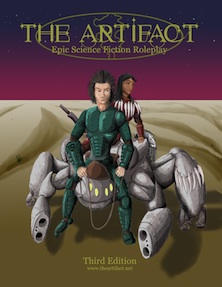How does a character get someone else to be their friend? Or get them to fall in love with them?
The first thing to get out of the way is that they can’t make anyone be their friend. You can’t make anyone fall in love.
So how do we make this happen? How can this work if someone isn’t getting forced? The answer is standard procedure for the Social Conflict rules. You push them.
Each time a character tries to get another character to be their friend or fall in love, they enter a social conflict and they actually cause mental stress to the other character. It’s important to understand that this isn’t explicitly the angry kind of mental stress of a shouting match. This can actually be very pleasant mental stress.
What this stress represents, is social pressure. It’s an open loop in the character’s thought process that is crying out for resolution. It’s the character’s choice whether they will consent or not. They could consent on the first try or refuse until they’re a miserable mess. It all hangs on how dangerous the character views the relationship. The stronger the proposed relationship the more danger it presents.
The following are guidelines for an GM to handle an NPC’s decision on if they should consent to a relationship. This isn’t intended as a chart the GM needs to consult, just as proposed milestones to help them in making choices for an NPC who may or may not have any kind of background.
So how does a GM decide for an NPC? The first time the NPC takes stress, the GM can check to see if they will accept. First, could the NPC handle the stress of the relationship breaking up? That includes friendships. Would the stress cause them to go over their Psyche attribute and cause a mental breakdown? Would entering the proposed relationship put the character in a difficult position? For example, falling in love with the enemy or it would conflict with existing relationships. Is the character that is proposing the relationship is deficient somehow that would effect the relationship? For example, the character’s Beauty attribute is lower than the NPC’s or the character is poor. If the relationship would cause little or no trouble for the NPC, they may take up the offer.
At any point the character can Stall the conflict or react with Aggression if the relationship would seem offensive to them. Follow the standard rules for this.
Only if a character immediately accepts the proposed relationship can it become a “True Love” relationship.
The conflict continues until the Mental stress built up is five points away from overwhelming the NPC’s lowest mental attribute (IQ, Int or Psy). Now the NPC is weighing the relationship more seriously. Remember though, they’re not stressed like they would be in an argument. They may be very upbeat, even ecstatic. Now the GM tests against the question, would entering the proposed relationship put the character in a difficult position? Especially if the relationship would cause a dangerous situation, the NPC will still refuse. Is the character proposing the relationship seriously deficient in some way? An attribute under 10 may be a good example, or more than four attributes are lower than the NPC’s attributes.
Once the conflict has overwhelmed the NPC’s Psyche the GM should consider refusing if the relationship would put the NPC in danger. Even at that, the NPC may still decide to consent. Is the character proposing the relationship severely deficient in some way? For example more than seven attributes are lower than the NPC’s attributes. This may still be grounds for refusing but the NPC is still conflicted and strongly considering the proposal.
If the conflict should progress to the point of Mental stress doubling the NPC’s Psyche attribute, the GM should very strongly consider the proposal being accepted by the NPC.
Player characters always have the choice made by the player but the conditions above could be used as rough guidelines if a player desired.
Relationship Decay
Over time a relationship will decay if it is not maintained. This could lead to bothersome accounting if the players were required to track each relationship. To avoid this, any time the GM feels it is appropriate, they may require a relationship check. Only one of the characters needs to pass a Charisma roll. The Extra Effort rules can be applied. These may be frequent or infrequent according to how the GM interprets the nature of the relationship.


 The Free RPG Blog
The Free RPG Blog
Pingback: Who Needs Emotions? | The Artifact RPG